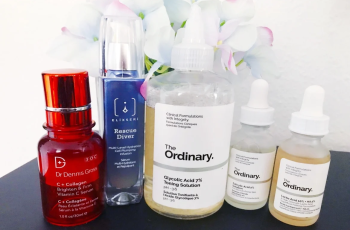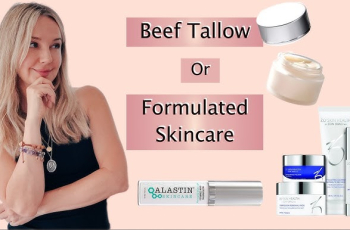
When Should You Retake the Skin Type Test? A Dermatologist’s Guide to Adapting Your Skincare Routine
Skincare is not static. Your skin is constantly changing due to internal and external influences like age, climate, hormones, stress, and even the products you use.
That’s why it’s essential to revisit your skin type classification from time to time—especially if you’re using the Baumann Skin Typing System to guide your skincare choices.
In my dermatology practice, I frequently recommend that patients retake the Skin Type Solutions quiz as part of their long-term skincare strategy.
Your skin type might change over time—and your skincare routine should change with it.
In this blog post, I’ll explain why, when, and how often you should retake the skin type test, and how it can help you maintain healthy, glowing skin for the long haul.
Why Your Skin Type Can Change
The Baumann Skin Typing System is built around identifying four key skin barriers that affect your skin’s overall health:
Dehydration
Inflammation
Hyperpigmentation
Aging
When you first take the Baumann Skin Type Indicator quiz, the results help categorize which of these barriers are affecting your skin the most.
A personalized skincare routine is then recommended to address those specific issues. But as your skin improves—through consistent care and proper products—your skin type can shift, and so should your routine.
Here’s how your skin may improve over time with the correct regimen:
Dehydration: Often resolves within a few weeks of using hydrating products.
Inflammation: Typically improves shortly after, especially when anti-inflammatory ingredients are added.
Hyperpigmentation: May take 12–16 weeks to noticeably fade.
Aging signs: These require ongoing care and usually show progress after several months of consistent treatment.
Once your skin improves in any of these areas, sticking with the same products could lead to over-treatment or new imbalances. That’s why it’s so important to retake the quiz and refresh your skincare plan.
When Should You Retake the Skin Type Test?
Let’s take a closer look at the specific situations where retaking the quiz is not just recommended, but necessary.
1. When Your Skincare Routine Stops Working
One of the clearest signs it’s time to reassess your skin type is when the products that once worked wonders suddenly seem ineffective—or worse, irritating.
For example:
If your skin was dehydrated and now feels oily
If your dark spots have lightened but your products still include skin-lightening agents
If breakouts return after a long stretch of clear skin
In these cases, your skin type may have changed due to progress in treatment, and continuing to use products for the “old” skin type could cause new problems. This is when a retake of the quiz is essential.
2. Seasonal Changes
Where you live can influence how dramatically your skin changes from season to season.
In hot and humid climates (like Miami), skin often stays more hydrated and oily throughout the year.
In cold, dry climates, winters may leave your skin tight, flaky, or even irritated—requiring richer creams and gentler cleansers.
During summer, your skin may become oilier, requiring lighter formulations and more robust sun protection.
If you notice that your skin feels different during certain times of the year, it’s not your imagination—your skin is adapting to the weather.
That’s why we recommend retaking the quiz at least once per season if you experience extreme seasonal variations.
3. Hormonal Shifts
Hormones play a huge role in skin health. Whether it’s oil production, collagen synthesis, or pigmentation changes, hormone fluctuations can significantly alter your skin type.
Hormonal changes may come from:
Puberty
Starting or stopping birth control
Pregnancy or postpartum changes
Menopause
Hormonal therapy (e.g., testosterone or estrogen supplementation)
Medications that alter hormone levels, such as spironolactone or tamoxifen
We advise our patients to retake the skin type quiz any time there is a major hormonal shift—and then again around 3 months later, as it often takes that long for the skin to reflect internal changes.
4. Major Lifestyle Changes or Increased Stress
Stress may not show up on a lab test—but it shows up on your skin.
When stress levels rise, your body produces more cortisol. This hormone increases blood sugar, which can lead to:
More frequent breakouts
Greater skin inflammation
Accelerated aging
Events such as starting a new job or school, moving, becoming a parent, or dealing with a breakup can all increase stress levels and impact your skin.
On the flip side, reduced stress (say, after a vacation or recovery from a difficult life event) can improve skin health. In both cases, a change in stress level is a great reason to retake the quiz and adjust your routine accordingly.
What Happens After Your Skin Improves?
Let’s say you’ve followed your customized routine for 90 to 120 days, and your skin is doing great: no more flaky dryness, reduced redness, fewer breakouts, and a more even tone.
Now what?
You should retake the quiz to determine your new skin type.
Continuing to use products designed for problems you no longer have—such as hyperpigmentation or inflammation—could lead to irritation or unbalanced skin.
For example, if your dark spots are gone, there’s no need to continue using aggressive skin-lightening ingredients.
By updating your skincare routine to suit your current skin needs, you can focus on maintaining your improvements and preventing future issues.
How Often Should You Retake the Quiz?
Here’s a simple guideline:
Trigger Recommended Quiz Frequency
No major changes Once a year
Seasonal shifts Every 3–4 months
Hormonal changes Immediately after the change, and again 3 months later
Increased or decreased stress As soon as the stress level changes noticeably
Routine no longer effective Immediately
Skin problems have improved or disappeared After 90–120 days of consistent product use
Not Sure If Your Skin Type Is Correct?
Another sign that you may need to retake the test is if your current skin type description doesn’t resonate with your experience.
The most common confusion is around the “P” designation for pigmented skin types. Many people assume this refers to ethnic background or natural skin tone—but it doesn’t.
In the Baumann Skin Typing System, “P” means you have visible dark spots or uneven pigmentation that you want to lighten.
If you don’t have those, you’re classified as “N” (non-pigmented), regardless of your skin color.
If you believe you’ve been misclassified—or if your skin has changed since the last quiz—it’s a good idea to reassess and make sure your skincare routine is actually aligned with your current concerns.
The Bottom Line: Your Skin Evolves, and So Should Your Routine
Skin is dynamic—it reflects your environment, lifestyle, stress levels, hormone balance, and how well you care for it.
The Baumann Skin Type Indicator quiz is a powerful tool to help you navigate these changes and maintain optimal skin health.
So don’t think of the skin type quiz as a one-and-done assessment. It’s more like a wellness check-in for your skin.
Just like you visit the doctor for annual physicals, your skin deserves regular re-evaluation, too.
Ready to see if your skin type has changed?
Take the quiz again and let your skincare evolve with you.

